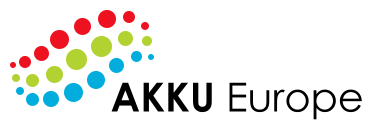
General information
| |||||||||||||||||||||
| Kind of tool: | Guides | ||||||||||||||||||||
| Target group: | Employees of small enterprises | ||||||||||||||||||||
| Duration in minutes: | 30 minutes | ||||||||||||||||||||
| Description of the tool: | As a leader, it is not always possible for you to see into the smallest corners of your company. You are dependent on the help of your employees when it comes to uncovering weaknesses and improving them in a meaningful way. One instrument to improve the quality of your company is a so-called quality circle. In contrast to simple meetings or working groups, the clear objective here is to bring about positive changes in your company. It is important that participation is absolutely voluntary. Voluntariness creates motivation and leads to a tangible result. In the long run, your quality improvement will become a self-runner if everyone involved participates in the quality circles with a positive attitude and supports this form of cooperation. | ||||||||||||||||||||
| Benefit of the tool: | 1. Initiative and work motivation With the help of quality circles, your employees work voluntarily and together to improve your company. Quality circles promote initiative and work motivation. 2. Increasing work performance You will learn how to correctly criticising and praising your employess. These are important tasks of a manager 3. Assessing performance of team members You will learn how to assess the performance of your employees 4. How to perform a quality circle You will learn the roles and the steps on how to perform a quality circle to improve you leading skills | ||||||||||||||||||||
| Duration: | 30 minutes | ||||||||||||||||||||
| How to use the tool: | To make the most of the tool, we recommend that you read it carefully and take notes of the ideas that come to mind when you read it. Then you will know what you can implement in your business and how to do it. | ||||||||||||||||||||
| Floor and Area: |
| ||||||||||||||||||||
| Source: | CIT | ||||||||||||||||||||
 The European Commission's support for the production of this publication does not constitute an endorsement of the contents, which reflect the views only of the authors, and the Commission cannot be held responsible for any use which may be made of the information contained therein  The materials published on the AKKU project website are classified as Open Educational Resources' (OER) and can be freely (without permission of their creators): downloaded, used, reused, copied, adapted, and shared by users, with information about the source of their origin. | |||||||||||||||||||||